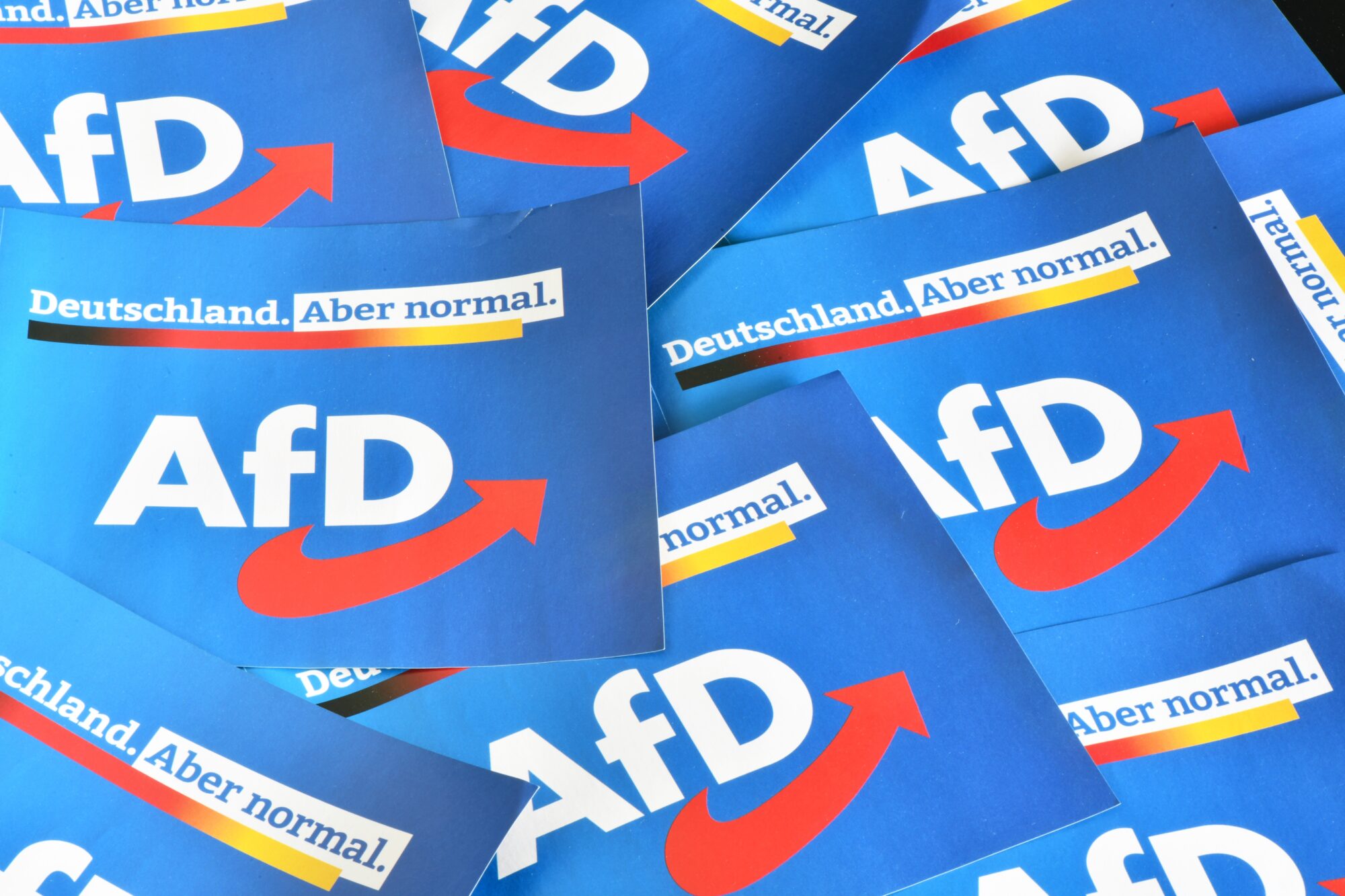
Photo by nitpicker / Shutterstock.com
Rising support for right-wing AfD (Alternative für Deutschland) is not due to the ‘radicalisation’ of the country reported by most media outlets, but is a protest against the establishment’s unpopular policies, according to a new survey by the Allensbach Institut for the Frankfurter Allgemeine Zeitung.
Participants in the poll were asked questions about various issues to determine how ‘radical’ their views were. The results show that only 2% of participants were deemed to be on the hard right of the political spectrum and another 2% on the extreme left. Of the respondents, 12% were considered to be strongly on the right, and 7% were strongly on the left. Everyone else had centrist views or was moderately on the right or left.
A similar survey conducted in 2019 produced similar results, indicating that Germans are not more ‘radical’ than four years ago.
“The large number of AfD voters is not an indicator of how strong right-extremism is. Anyone who worries about high inflation, the escalation of the war, unregulated migration, or high levels of crime, does not have a right-wing extremist position from the outset,” extremism researcher Eckhard Jesse told Bild. Rather, it is more likely an indication that the political elite “increasingly no longer represents the views” of the “little guy,” he said. The survey found that 78% of AfD voters said that by voting for the party, they wanted to send a message that they were unhappy with current government policies, especially on the migration crisis.
According to the FAZ, “the strength of the party does not derive from the fact that it is perceived as particularly likeable or even competent, but mainly from the need to protest against the immigration policy, which many—far beyond the circle of AfD sympathizers—perceive as catastrophic.”
The opposition right-wing party AfD, which rejects mass migration to Europe and sending weapons to Ukraine, has been surging in the polls and is currently backed by 20% of the voters, making it the second-strongest party in Germany, according to a poll by RTL and n-tv. The party’s best national election result was in 2017 when it received 12.6% of the votes. Another opposition party, centre-right CDU/CSU, is the frontrunner, currently polling at 26%, while the three governing parties would probably find it hard to form another coalition if elections were held today: the Social Democrats (SPD) have 18%, the Greens 14% and the liberal FDP 7% of the votes.
In another sign that the governing German parties are not doing well in the eyes of their voters, a recent survey by polling group Insa revealed that AfD co-chairman Alice Weidel is now more popular than Economy Minister Robert Habeck (Greens) and Interior Minister Nancy Faeser (SPD). Weidel is the 16th most popular politician with 36.1% of participants finding her likeable. She is hot on the heels of social-democratic Chancellor Olaf Scholz, who has fallen from 7th to 12th position and is liked by 38% of respondents. Foreign Minister Annalena Baerbock (Greens)—who has suffered a series of blunders lately—is 13th with 37.9%. The most popular politician is Defence Minister Boris Pistorius (SPD) with 53.8%, followed by Bavarian Prime Minister Markus Söder (CSU), and Prime Minister of North Rhine-Westphalia Hendrik Wüst (CDU).
